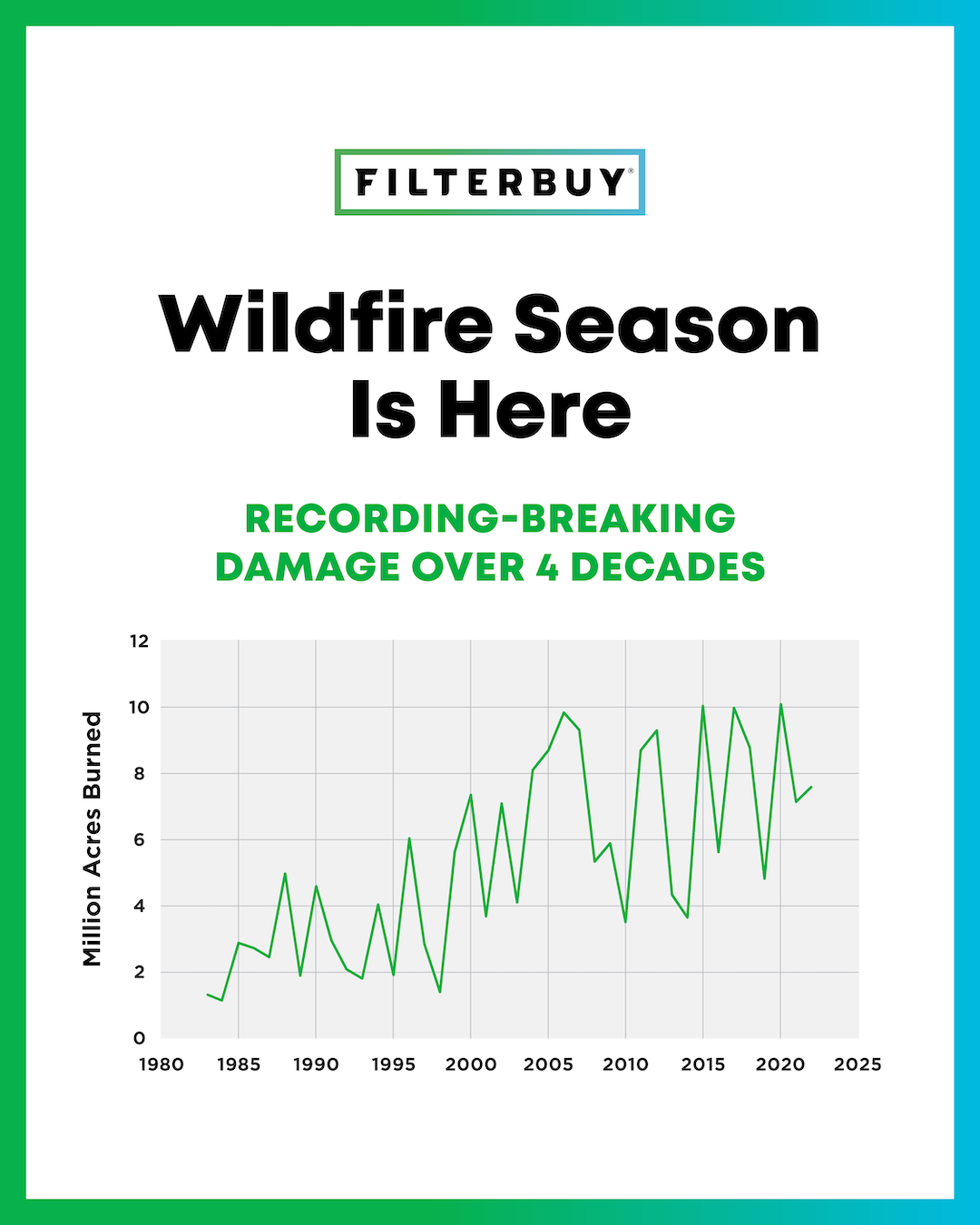Shop by

Wildfire smoke carries PM₂.₅, dust so small it slides deep into lungs and can slip into the blood. The U.S. EPA says the best way to protect yourself is to keep smoke outdoors and clean the air that stays inside. Follow these steps when haze rolls in.
Close every window, exterior door, fireplace damper, and pet flap. Push a towel or draft snake against door bottoms. This quick move keeps fresh waves of smoke from drifting indoors.
Tip: If you feel air on the back of your hand near a window frame, add painters’ tape or weather-strip until the leak stops.
Running the fan on recirc drives indoor air through the filter again and again instead of pulling smoky outdoor air through return ducts. Install the highest filter your system allows:
MERV 13 is the level the EPA calls “especially important during smoky periods”.
Look at the filter once a month during the fire season. Thick smoke can fill a MERV 13 in 30–60 days.
If you’re unsure your furnace can pull air through a MERV 13, ask an HVAC technician to test airflow and tweak the blower speed.
Choose one bedroom or living room with few windows. Close the door, seal cracks, and run a portable HEPA purifier on high. A HEPA unit traps about 99% of smoke dust.
No purifier handy? Tape four MERV 13 furnace filters around a box fan. EPA tests show this DIY unit lowers indoor PM₂.₅ quickly.
If temperatures rise, it is fine to use central AC or a window unit. Keep these rules in mind so the system helps instead of hurts:
AC helps with smoke only if it’s set to recirculate. The filter cools and cleans the same indoor air. If fresh-air vents stay open, the unit just pulls more smoke inside.
Anything that burns or stirs dust makes smoke problems worse.
Check a reliable AQI app twice a day. When readings fall below 100 (“Moderate”) for several hours, open windows briefly to air out the house, then close them if smoke returns.
Wipe hard surfaces with a damp microfiber cloth. Dry dusting just redistributes particles. Wash bedding, throw rugs, and pet fur. Smoke dust sticks to fabric and hair.

Thin MERV 1–4 pads trap large lint but miss most wildfire PM₂.₅, so coughing, eye sting, and asthma flares continue, especially in kids, seniors, and people with lung disease. These thin pads clog quickly, overwork the blower, and waste energy. Upgrading to MERV 13 blocks about 90% of smoke dust each pass and helps the HVAC run easier.
Close up the house, switch to recirculate, and drop in a MERV 13 filter today. Add a HEPA purifier for sleeping spaces. These fast steps block outside smoke and clean the air you breathe.
Close all windows and outside doors, block door gaps with towels, and set the HVAC to recirculate with a MERV 13 filter.
Run a portable HEPA purifier (or a DIY box-fan filter) in one closed room until the haze and smell fade.
Yes, if you close the fresh-air vent, keep windows shut, and use at least a MERV 13 filter so the unit cleans indoor air instead of pulling smoke inside.
A certified HEPA purifier captures about 99 % of fine smoke dust (PM₂.₅); place one in bedrooms or main living spaces for best results.
Check it every month; thick smoke can clog a MERV 13 in 30–60 days, far faster than the normal three-month cycle.
Skip candles, incense, wood fires, and regular vacuuming (unless you own a sealed HEPA vac); these activities stir up more particles.
Only if the Air Quality Index (AQI) drops below 100 for several hours. Check a trusted AQI app before venting.
A low-cost PM₂.₅ sensor (about $30) shows real-time dust levels; if numbers stay high after the fan runs, the filter or purifier needs attention.
MERV 13 fits most home furnaces and captures roughly 90 % of smoke dust in each pass; HEPA is even finer and is found in portable purifiers, not standard duct slots.
Yes. If you use a modern fan with safety markings, keep it on a flat surface, and replace the MERV 13 panels when they darken.